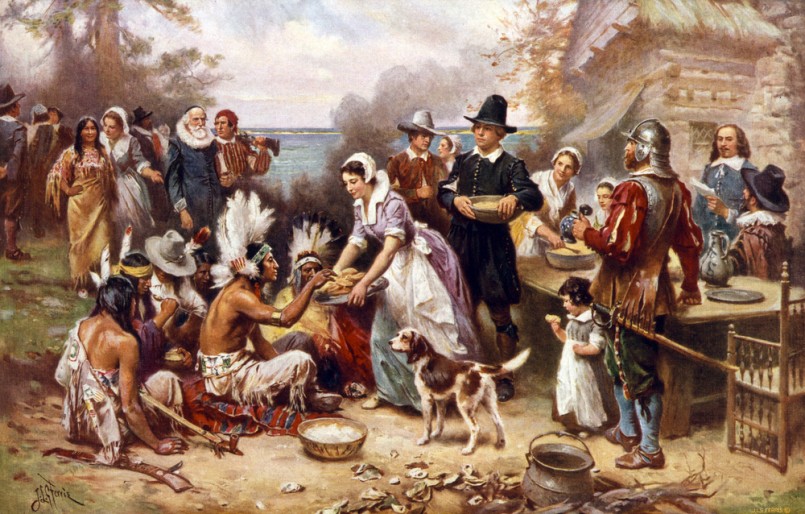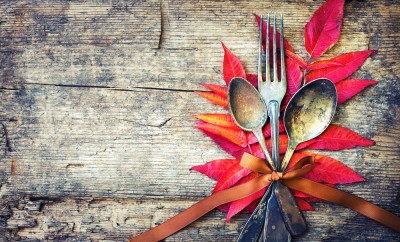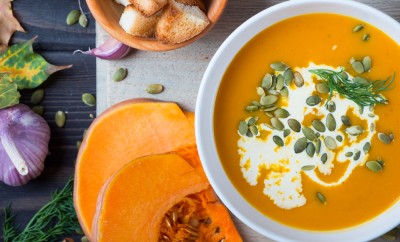Cultures
Your idea of Thanksgiving isn’t as normal as you think

Image: Shutterstock/Everett Historical
In one of Tim and Eric’s sketches from their absurdist Adult Swim comedy show called “Tim and Eric Awesome Show, Great Job!”, we see a piercing satire of a certain American notion of Thanksgiving. In the sketch, a monstrous cartoon character named Grum stars in the fake movie called The Pillgrums. A short clip shows Grum with a horrible CGI man-Pilgrim on a ship as they approach Plymouth Rock, where they see “Indians” having a Thanksgiving dinner of turkey, gravy, croissant rolls, ambrosia and pies. The sketch’s joke plays on the widespread idea that when we eat turkey on Thanksgiving Day, it’s in memory of the Pilgrims who arrived half-starved on the American continent and were fed by the Native Americans. But eating ambrosia and pecan pie in memory of Pilgrims is only the surface of our strange American practices of gratitude—Thanksgiving is equally about watching football and giant department-store funded Snoopies on TV, and about going to bed early to wake up in time for extreme shopping on Black Friday. This may be a typically American way of celebrating Thanksgiving—but how do other people from other cultures celebrate festivities of gratitude?
Thanksgiving in the United States was originally a harvest festival, and in Germany’s equivalent holiday, called Erntedankfest, the harvest remains prominent in celebrations. A religious holiday, for Erntedankfest many churches are decorated with autumn crops beautifully laid around the altar, and some towns host religious processions or parades. In some processions, people wear Erntekrones, a harvest crown made of flowers, grain and fruit. Also, in Bavaria, Erntedankfest is associated with Oktoberfest, the famous beer festival that has been imported to the United States.
In Japan, Thanksgiving has been celebrated for at least 2,600 years. Called Niiname-sai, this harvest festival traditionally commemorated the year’s hard work, and during the festival’s ceremony, the Emperor dedicated the year’s harvest to spirits believed to be part of nature called Kami. The modern-day version of this celebration is called Kinrō Kansha no Hi, which translates as Labor Thanksgiving Day. True to its ancient derivative holiday, which celebrated hard work, today it is the occasion to celebrate workers’ rights, with many labor organization-led festivities. These include children making crafts and gifts for local police officers.
A variation of American Thanksgiving is celebrated in the West African nation of Liberia, which was founded in the 19th century by freed slaves from the United States. The ex-slaves brought with them and transformed some of their American customs, celebrating Thanksgiving with cornucopian baskets filled with bananas, papayas, mangoes, and pineapples. These are brought to church and auctioned, and then families have feasts at home, which include a lot of hot and spicy food. And of course, like with most Liberian celebrations, there is plenty of music, song, and dance during Thanksgiving Day.





0 comments